Brand new games certainly make you long for the classics, and you might even wonder about certain additions or improvements. Our guide discusses the differences between Super Mario RPG Remake and the original.
How is the Remake Different From the Original Super Mario RPG?
The Super Mario RPG Remake and original differences can be summed up into several categories: audiovisual upgrades, QOL improvements, combat mechanics, Triple Moves, and post-campaign activities. Bear in mind that the original game released for the Super Nintendo (SNES) in 1996, and we’re 27 years removed from then with the Nintendo Switch remake. In any case, I’ve added a few details in each section below.
Audiovisual and QOL Improvements
Naturally, the most notable change in this remake for the Nintendo Switch is the stellar high-definition graphics, with brighter and more vivid colors, compared to the 16-bit game that released for the SNES. The updated music and sound effects have better quality, perfect for the modern age. However, you can also select the original SNES score via the options menu.
As for QOL improvements, players will notice a couple of things. The first is the fast travel method, which you can access by opening your map from the menu. The second is the exclamation point that appears to notify you if you need to press the A button once more (i.e. to boost your attack or nullify direct damage).
One feature that I’m absolutely thankful for in the Super Mario RPG remake is the autosave system (in conjunction with manual saves). Basically, whenever you enter a new area, the game will autosave, so you don’t lose a lot of progress if you accidentally turn off your console. I honestly cheered when I realized this because I played the original on the SNES decades ago (I was renting the console in an establishment). For some reason, I would save the game manually, but the files would be gone whenever I returned to the shop. Either the cartridge was defective, or someone was deleting them without my knowledge. Regardless, this is definitely a welcome addition, as it’s respectful of the player’s time.
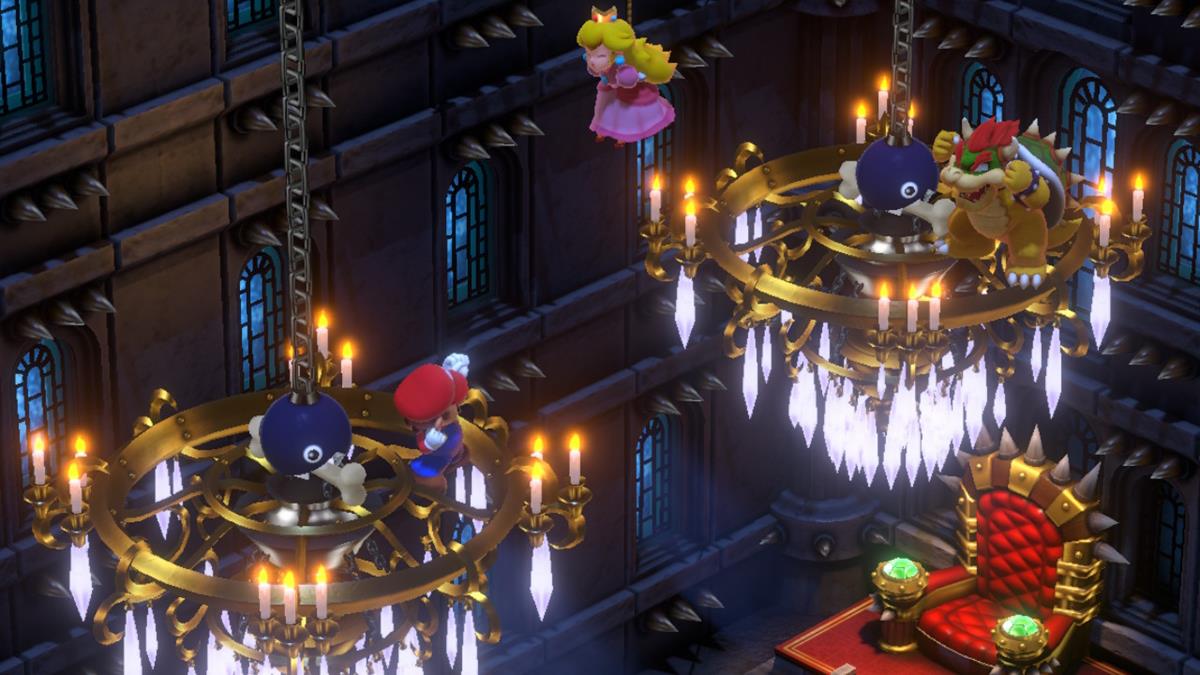
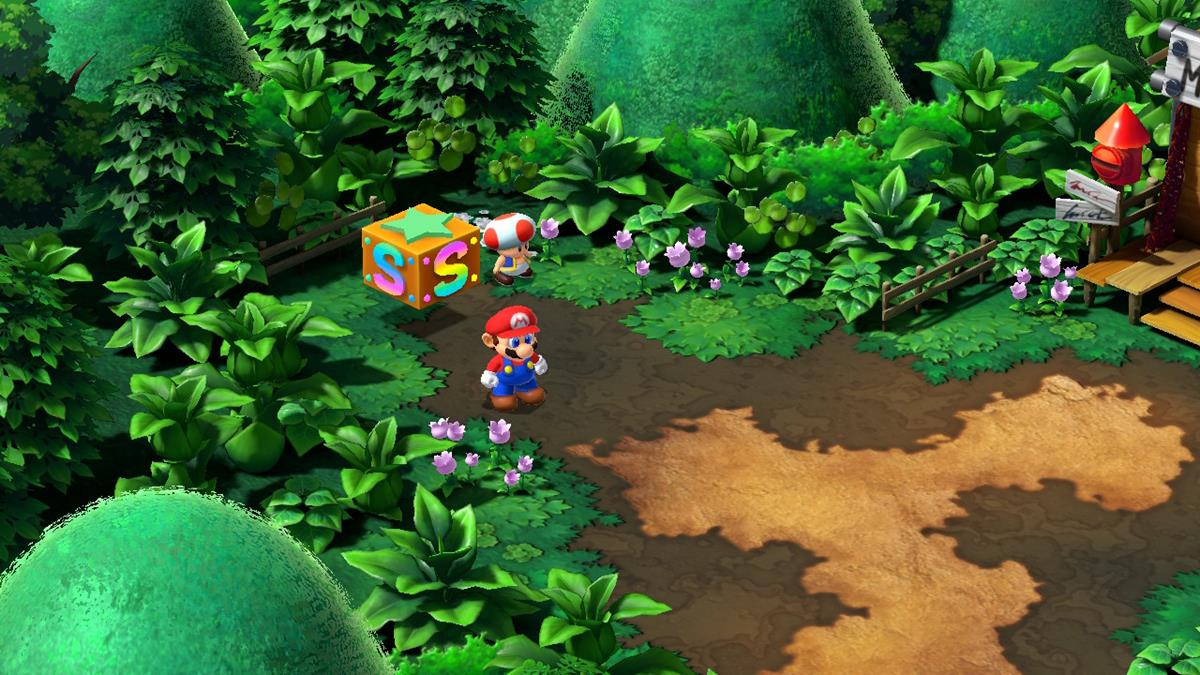
New Combat Mechanics
Speaking of attack boosts, the biggest difference between the original Super Mario RPG and the remake is the use of the Action Gauge/Combo Chain. When you perfectly time your button presses in succession, your counter and gauge increase. The higher the threshold, the bigger the boons, such as increased physical or magic damage.
Similarly, boosted attacks also cause damage to all enemies, which means you can focus on your main target while still depleting the HP of weaker hostiles. I was ecstatic when I tried this mechanic. I found the concept of gaining more buffs based on properly timed button inputs very rewarding.
Moreover, you can switch between party members by pressing the + button during combat. This allows you to bring in a teammate that hasn’t been used often, just in case they could turn the tide of battle. I made use of this mechanic a few times as well, especially during boss fights when certain characters were suffering from status effects.
In the same vein, there’s the “Breezy” difficulty mode, which is somewhat akin to “very easy” or “story mode” in modern games. This lessens the challenge, but it’s viable for players who are new to the genre. It’s also a nifty way to progress through the game, especially if you’re not keen on always timing button presses when necessary.
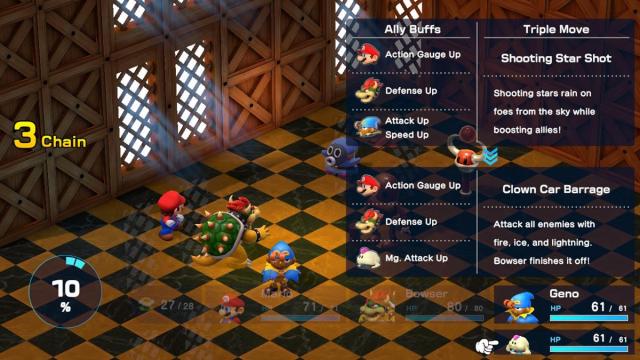

Triple Moves
When your Action Gauge is full, you can unleash a Triple Move. As the name implies, this is a powerful ability where the three characters in your party unleash a devastating blow that hits all enemies. Depending on the current party setup, you’ll see different animations and attacks, too. This is yet another impressive idea that keeps you engaged as you master the intricacies of combat.

Post-Campaign Activities
Lastly, post-campaign activities await those who complete the story. The coolest, by far, are Boss Rematches. This mode allows you to battle the toughest foes that you’ve faced in the campaign, presenting new challenges down the line. There’s also a Sound Player, so you can listen to your favorite tracks.
That’s it: that’s everything you need to know about the differences between the remake and the original Super Mario RPG. If you’re just starting out, you might want to learn about all the recruitable party members and the best level up bonus stats. For more tips and strategies, you can check out our SMRPG guides hub.

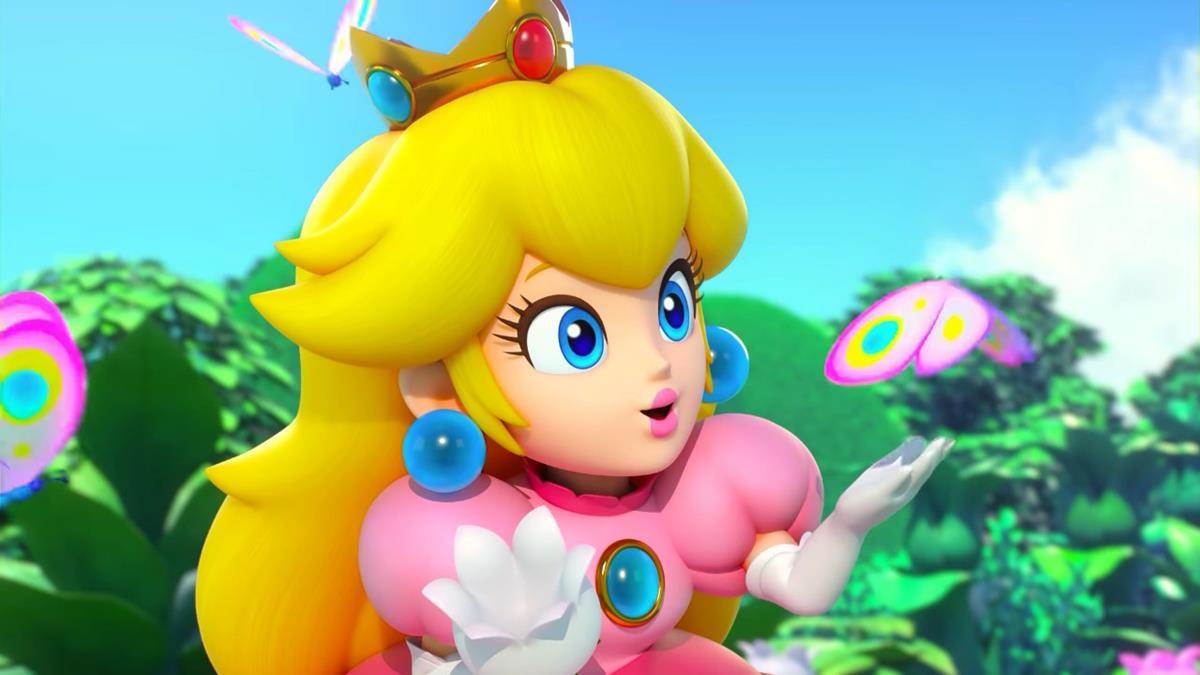
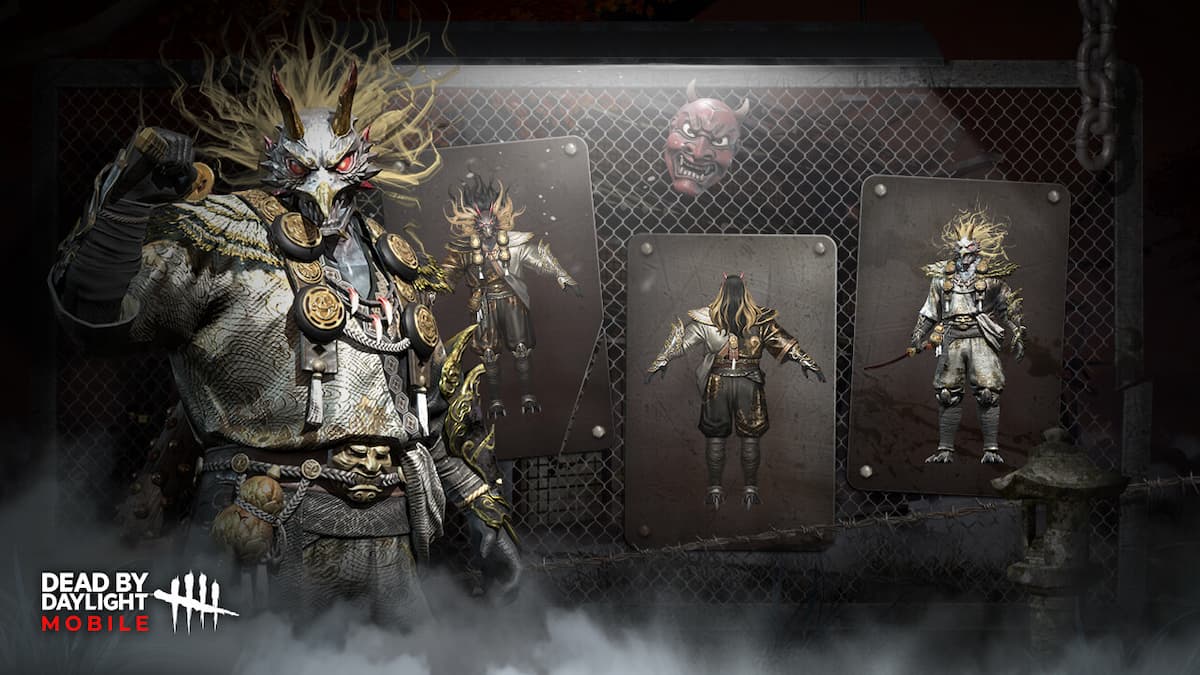
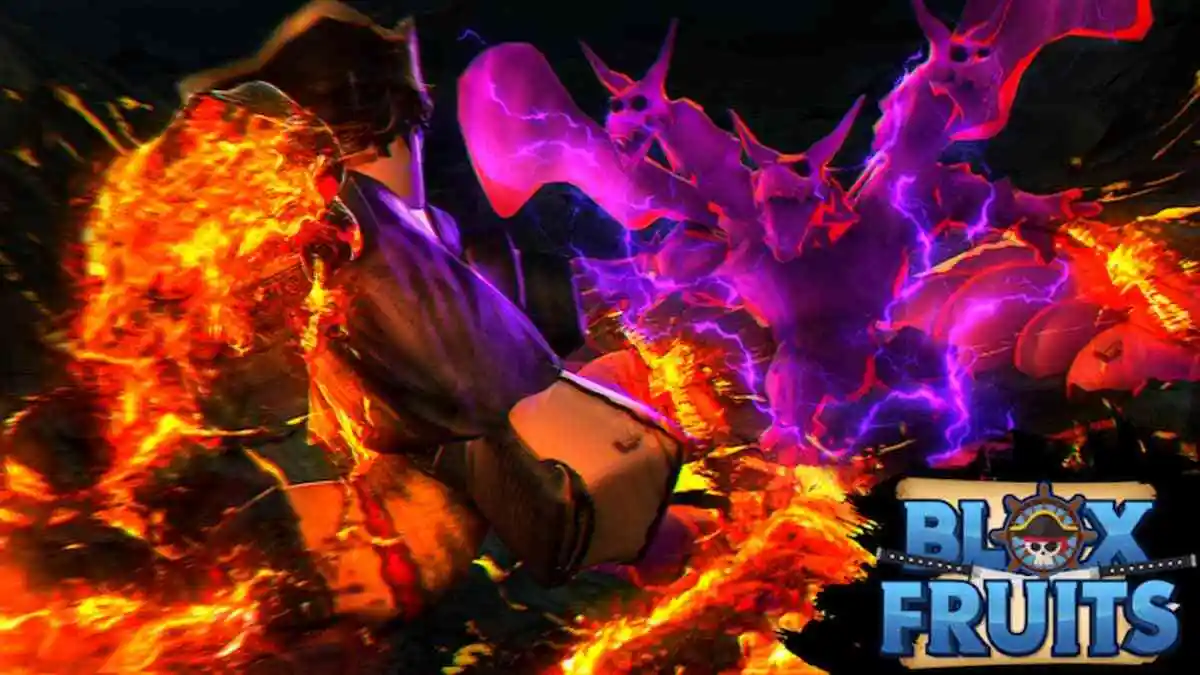

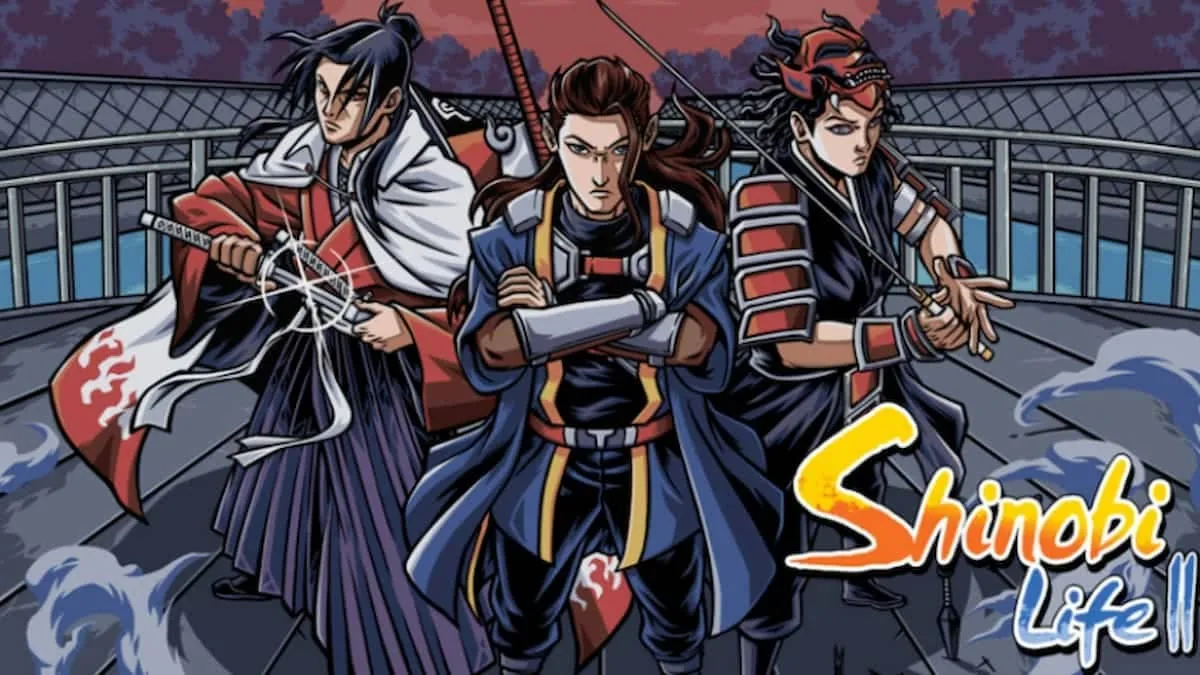

Published: Nov 18, 2023 02:15 pm